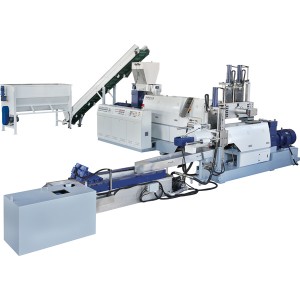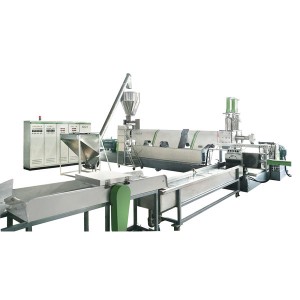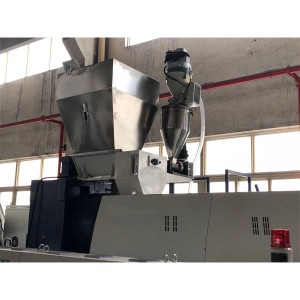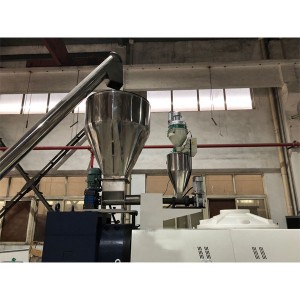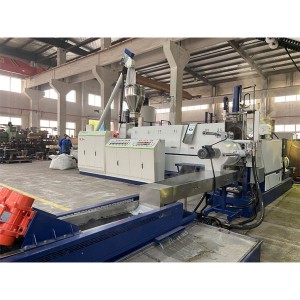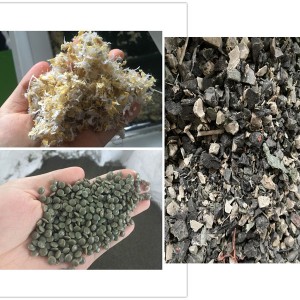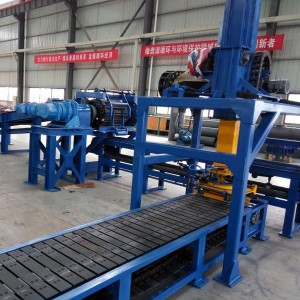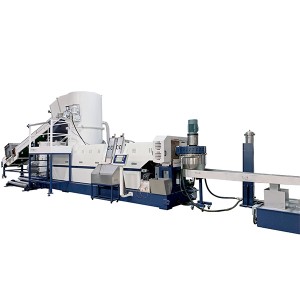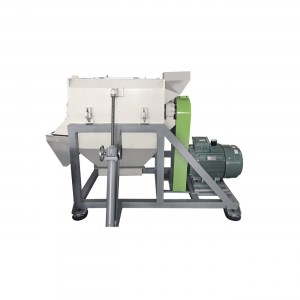single screw extruder for plastic recycling pelletizing system
Single screw extruder plastic recycling pelletizing system
The single screw extruders have been developed for a very basic form of extruder that simply melts and forms the material. Due to their low cost, simple designs, ruggedness, and reliability, single screw extrusion machines are one of the most popular extruding machines and widely used for all kinds of plastics recycling. The most popurlar is the PP and PE recycling.
SJ Series is single screw extruder recycling pelletizing system is a specialized and reliable system which suitable to the recycling and re- pelletizing. It combines function of plasticization and pelletizing to one step. It could be used in recycling the plastics, such as crushed PE, PP bottles and drums flakes and washed and squeesed dry PE films, also the ABS,PS,PP from the waste pallets, chairs, appliances etc. The plastic recycling machine’s capacity can be various from 100-1100kg/h.
1.For the rigid plastics pelletizing, such as the The screw of the extruder is special designed for the different comparatively contaminated plastics with two times filtering. It can do the PP,PE,ABS and PC rigid plastics and the washed squeezed PP,PE films . The barrel can be wind cooling or water cooling. And the pelletizing type can be watering pelletizing, strand pelletizing and underwater pelletizing.
2.For the washed and squeesed drying PE PP films. The moisture of the raw material need to be within 5-7%. It is with large silo with screw to automatically transfer the material into the belt, which will transfer the raw material into the extruder.
The machine is with two stages can effectively filter the impurities and are easy to pelletize the raw material in the watering pelletizing system.
According to customer request, we can make the pelletizing system to strand pelletizing or underwater pelletizing.
Characteristic:
With advanced design, high output, good plasticizing, low consumption, and spline gear transmission, it has the advantages such as low noise, stale running, good bearing capacity and long life.
The single screw extruder recycling pelletizing system offers a cost-effective and efficient solution for recycling plastic waste, as it can process a wide range of plastic materials and produce high-quality pellets that can be used in a variety of applications. It also helps to reduce the amount of plastic waste that ends up in landfills or the environment, contributing to a more sustainable and eco-friendly manufacturing process.
Model for single stage extruder
| Model | SJ100 | SJ120 | SJ140 | SJ150 | SJ160 | SJ180 | SJ200 |
| Screw diameter | 100 | 120 | 140 | 150 | 160 | 180 | 200 |
| L/D | 18-42 | 18-42 | 18-42 | 18-42 | 18-42 | 18-42 | 18-42 |
| Rotary speed | 10-150 | 10-150 | 10-150 | 10-150 | 10-150 | 10-150 | 10-150 |
| Output(kg/h) | 250-350 | 300-400 | 500-600 | 600-800 | 800-1000 | 900-1200 | 1000-1500 |
Model for two stage extruder
| Model | SJ130/140 | SJ140/150 | SJ150/160 | SJ160/180 | SJ200/200 |
| Output(kg/h) | 500 | 600 | 800 | 1000 | ont-size: medium;”>1000-1200 |

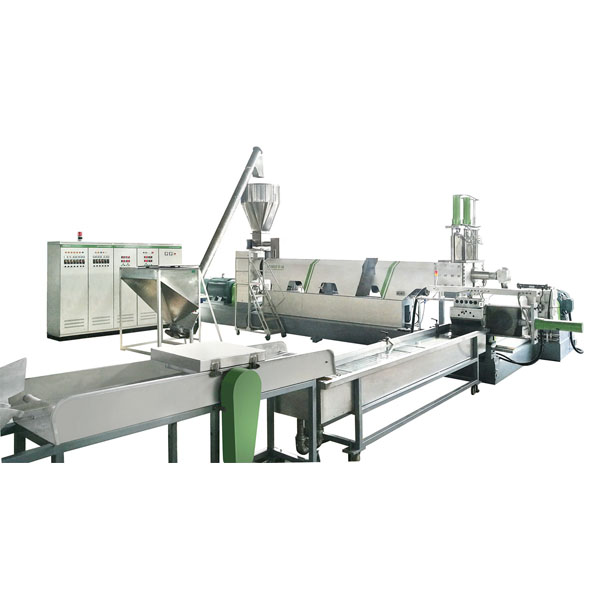
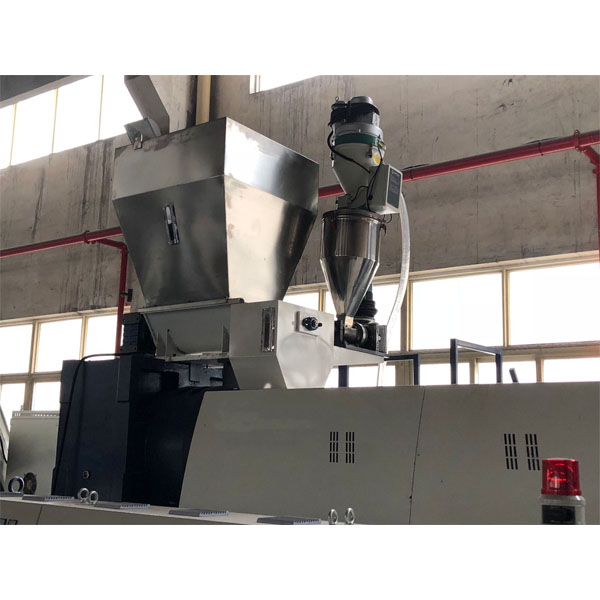

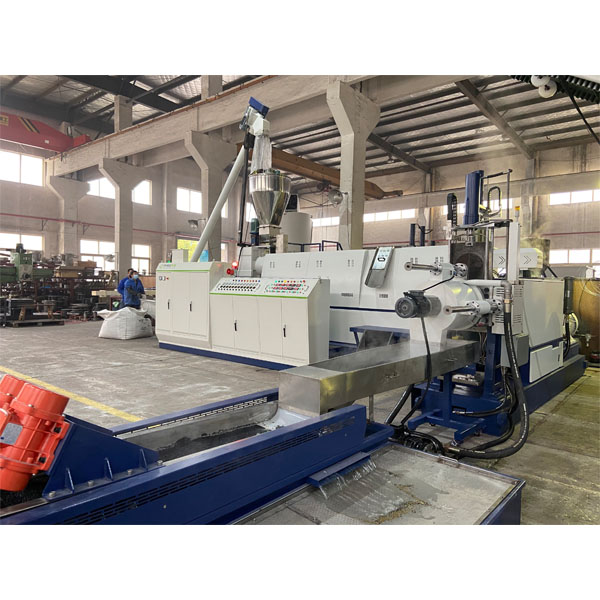
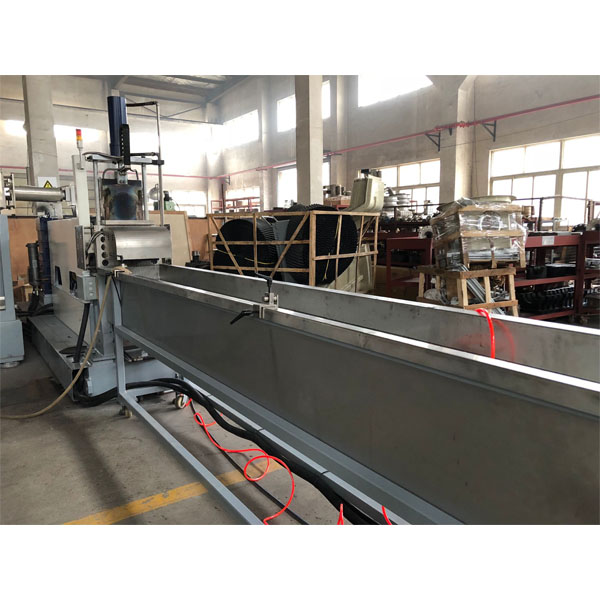
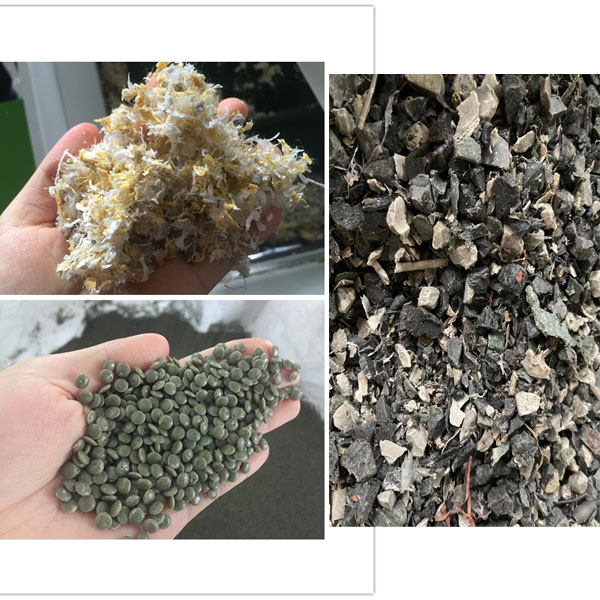
A plastic recycling and granulating machine is a type of equipment used to recycle plastic waste into granules or pellets that can be reused in manufacturing new plastic products. The machine typically works by shredding or grinding the plastic waste into small pieces, then melting and extruding it through a die to form pellets or granules.
There are different types of plastic recycling and granulating machines available, including single-screw and twin-screw extruders. Some machines also include additional features such as screens to remove impurities from the plastic waste or cooling systems to ensure the pellets are solidified properly. PET bottle washing machine, PP woven bags washing line
Plastic recycling and granulating machines are commonly used in industries that generate large amounts of plastic waste, such as packaging, automotive, and construction. By recycling plastic waste, these machines help reduce the environmental impact of plastic disposal and conserve resources by reusing materials that would otherwise be discarded.
Lithium battery recycling equipment is a type of equipment used to recycle and recover valuable materials from lithium-ion batteries, which are commonly used in electronic devices such as smartphones, laptops, and electric vehicles. The equipment typically works by breaking down the batteries into their constituent parts, such as the cathode and anode materials, electrolyte solution, and metal foils, and then separating and purifying these materials for reuse.
There are different types of lithium battery recycling equipment available, including pyrometallurgical processes, hydrometallurgical processes, and mechanical processes. Pyrometallurgical processes involve high-temperature processing of the batteries to recover metals such as copper, nickel, and cobalt. Hydrometallurgical processes use chemical solutions to dissolve the battery components and recover metals, while mechanical processes involve shredding and milling the batteries to separate the materials.
Lithium battery recycling equipment is important for reducing the environmental impact of battery disposal and conserving resources by recovering valuable metals and materials that can be reused in new batteries or other products.
In addition to environmental and resource conservation benefits, lithium battery recycling equipment also has economic benefits. Recovering valuable metals and materials from used batteries can reduce the cost of producing new batteries, as well as create new revenue streams for companies involved in the recycling process.
Furthermore, the increasing demand for electric vehicles and other electronic devices is driving the need for a more efficient and sustainable battery recycling industry. Lithium battery recycling equipment can help meet this demand by providing a reliable and cost-effective way to recover valuable materials from used batteries.
However, it’s important to note that lithium battery recycling is still a relatively new industry, and there are challenges to overcome in terms of developing efficient and cost-effective recycling processes. Additionally, proper handling and disposal of battery waste is crucial to avoid environmental and health hazards. Therefore, proper regulations and safety measures must be in place to ensure the responsible handling and recycling of lithium batteries.


